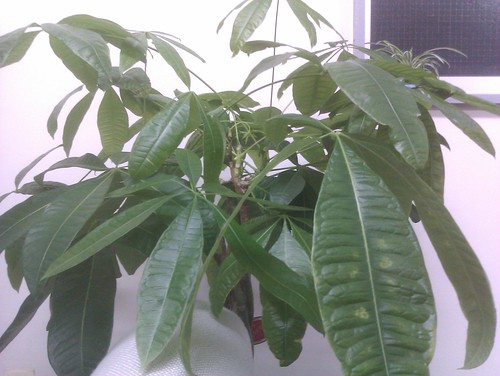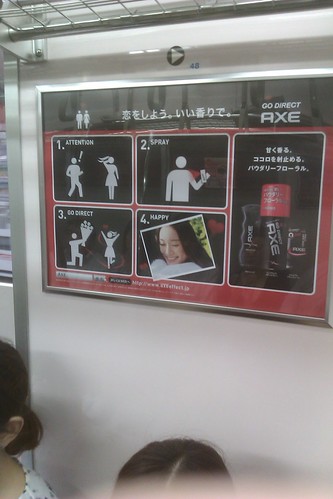I wanted to see if Otemachi is
within walking distance of our classroom. Our classroom is really close to Kanda Station, Shin-nihonbashi, and Mitsukoshi-mae Stations, but looking at the map, Otemachi looked really close, too.
- within walking distance of ~から歩いて行ける距離[範囲]で (definition from Eijiro on the Web)
- It's within walking distance. 歩いて行ける距離です。(definition from Eijiro on the Web)
I thought it probably was close enough to walk from, so I took a walk to
confirm my hypothesis.
- confirm the hypothesis that 〔that以下〕という仮説{かせつ}を裏付ける{うらづける}(definition from Eijiro on the Web)
After checking the map, I
hit the door and started down the street towards Otemachi Station. A lot of people were just getting off work and
heading towards various stations.
- hit the door 出発する (casual)
- head towards ~の方へ向かう (definition from Eijiro on the Web)
When I got to Otemachi, I
snapped this shot of exit A5, the one closest to our classroom. An office worker was going down into the station, and a member of the station staff was coming up the stairs.
- snap a shot of ~の写真を撮る (definition from Eijiro on the Web)
I started my stopwatch and turned around towards our classroom. I took a reasonable pace. I passed some construction workers carrying their equipment back to their van. One older man in down jacket seemed to be
in a hurry and passed me.
- in a hurry 急いで、慌てて (definition from Eijiro on the Web)
The sidewalks were full of
commuters, but after eight minutes and 10 seconds, I arrived in front of our building.
- commuter【名】通勤者{つうきん しゃ}、通学者{つうがく しゃ} (definition from Eijiro on the Web)
What do you think? Is eight minutes
within walking distance? Regardless, there are three other closer stations nearby, within three to five minutes. I hope you will
walk over and say hello.





